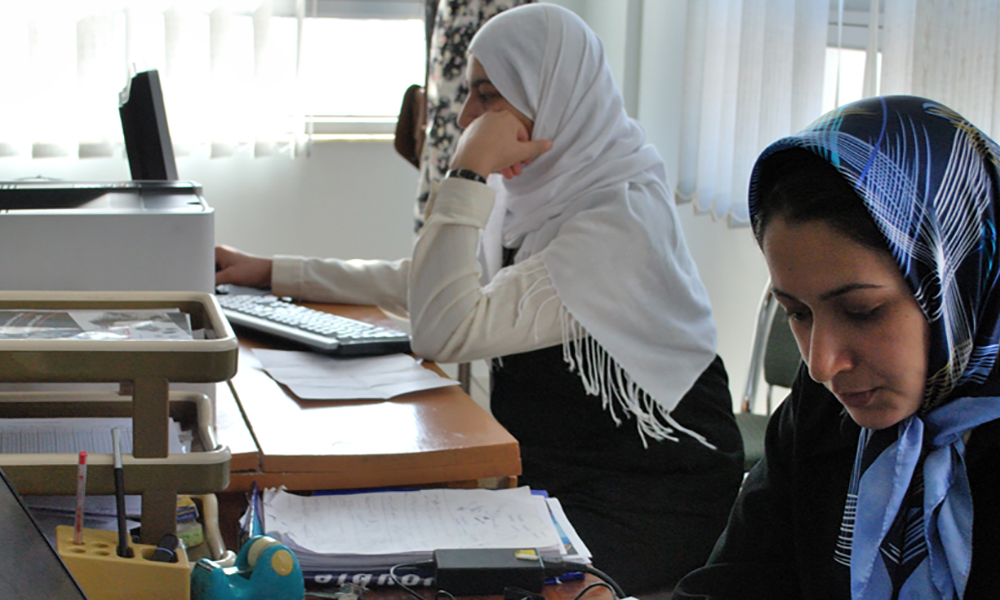One year after the ban was imposed on women working in some fields in Afghanistan, the special representative of the United States and the United Nations have emphasized that the ban has jeopardized the process of providing assistance.
They have demanded the cancellation of the ban.
I’m December last year, the Ministry of Economy issued a decree prohibiting women and girls from working for non-governmental organizations.
The UN special rapporteur on human rights and the representative of the United States of America on human rights and women’s affairs for Afghanistan have once again called for the cancellation of the decree banning the work of women by the Islamic Emirate of Afghanistan.
Richard Bennett, the special rapporteur for human rights of the United Nations for Afghanistan, has once again called for the lifting of the ban on women’s work in this country.
Bennett emphasized that the role of women in the vital economic situation and their contribution to the prosperity and progress of the Afghan society is essential.
Bennett wrote in a message on X: “One year ago #Taliban [Islamic Emirate of Afghanistan] banned women from working in NGOs. Once again I urge the lifting of the ban. Education and work are vital to a full and dignified life, women are crucial for the economy and their contributions are essential for the well-being and progress of #Afghan society.”
At the same time, Rina Amiri, the special representative of the United States of America for human rights and women’s affairs for Afghanistan, also said on the anniversary of the ban on women’s work by the Islamic Emirate in Afghanistan that the ban on women’s work in non-governmental organizations and international organizations to provide humanitarian aid faces a serious threat.
Amiri wrote on X that the request to cancel this order should be strengthened.
A part of Amiri’s message states: “The Taliban’s suspension of Afghan female NGO and UN staff poses a serious threat to the delivery of critical humanitarian assistance. Even where women have negotiated the space to work, the ban leaves them vulnerable to intimidation & threats.”
She emphasized: “You should cancel the slogan of bans, let’s strengthen it among Afghans.”
This is while the Islamic Emirate of Afghanistan announced a ban on women’s work in non-governmental institutions and international organizations in December of last year.
After this decree, a large number of Afghan women stayed at home. Many international organizations, whose aid process was more dependent on women’s work, stopped or suspended their activities in Afghanistan.
Earlier, the United Nations and other international aid agencies called the decision to ban women’s work another violation of women’s fundamental rights and against the United Nations Charter and stated that the decision will seriously affect the people of Afghanistan.
Despite the repeated warnings and requests of the international community to lift the ban on women’s work and education, the Islamic Emirate has not taken any action in this regard in more than two years.













